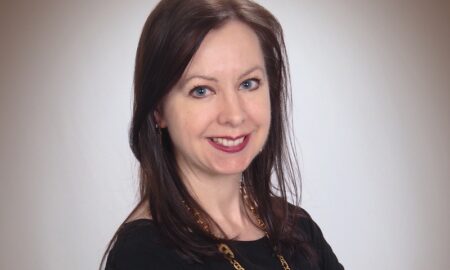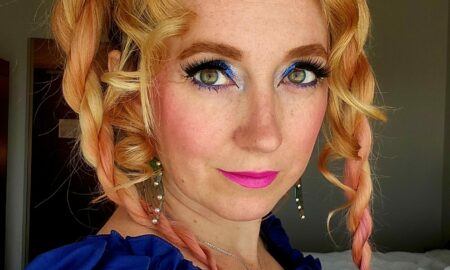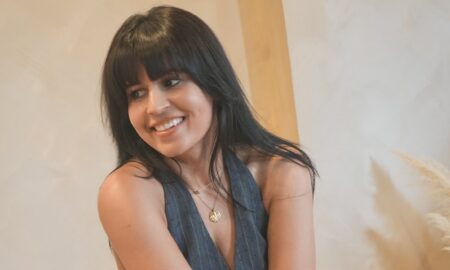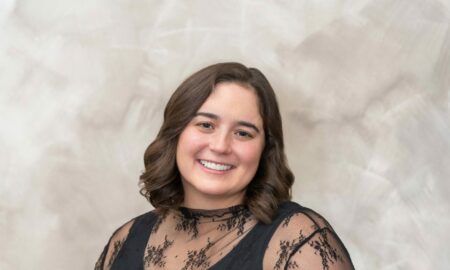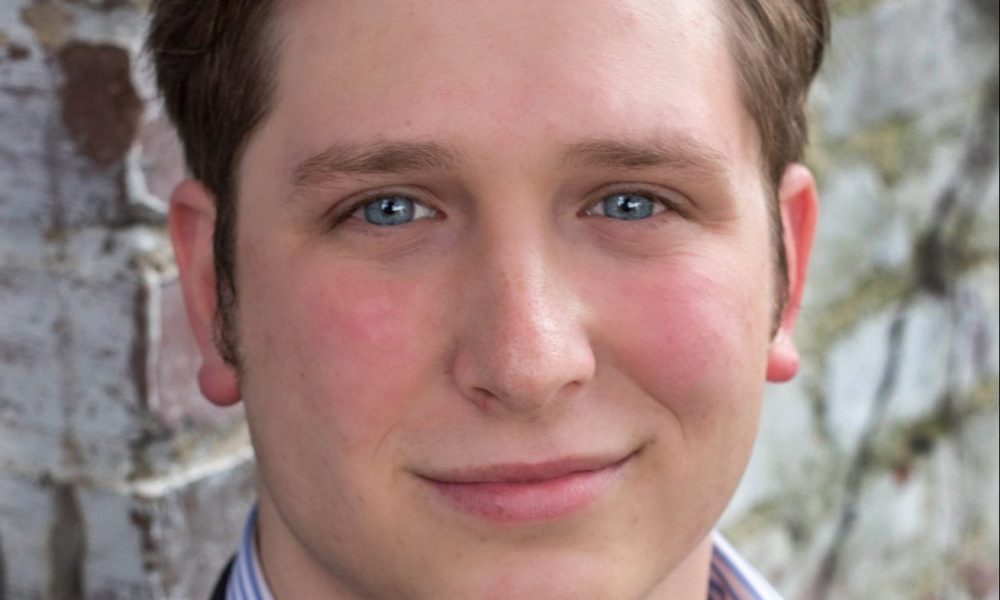

Today we’d like to introduce you to Daniel Weisman.
So, before we jump into specific questions about what you do, why don’t you give us some details about you and your story.
Born in suburban Ohio, I didn’t spend much time singing in choirs or theatrical productions in my youth. My family was a wrestling family and, while I endured a failed attempt at piano lessons in my youth and had played in the school band since my earliest opportunity, music wasn’t a huge part of my life, save for a place for me to make and spend time with my friends. When I was in eighth grade, I had my first taste of how bitter the world of music could be: I had auditioned for the eighth-grade musical, Honk Jr., and made callbacks as one of the only three boys that auditioned.
The director had posted the printed out cast list on his office door the next day and I was devastated that I wasn’t on it. He had cut me and, was my thirteen year old eyes bored holes into the paper, willing it to change, the director exited his office like he had been waiting for me and, with a smarmy grin, told me that I was the worst singer that he had ever heard and that I would be lucky to ever be cast in the offstage chorus of a community theatre production.
A bitter, angry, grown man thought that telling a thirteen-year-old boy that he had no talent was a favor. That he was attempting to save me from a life of heartbreak and disappointment or, more likely, he was just angry.
I cried and my mom let me stay home from school the next day.
After that, I quit singing in choir, stopped doing musical theatre, and stopped caring. My grades slipped even more than they had before and, in the midst of puberty, I discovered that I didn’t know who I was anymore.
About a year later that particular theatre director was fired and, with a new director at the school, I auditioned for the spring musical and was cast as Benjamin Guggenheim in Titanic: A New Musical. That was where I met Amy Blosser, who was the choir director. She convinced me to join chorus my junior year and, after giving me a solo in my first ever concert, let me know that her husband, Andrew Blosser, was interested in giving me voice lessons.
I said yes because, being competitive and honestly annoying, I figured that taking voice lessons with the choir director’s husband would help me get cast in the musical.
Like most, I can admit that high school wasn’t exactly fun and that taking voice lessons and being in a choir didn’t fix my lack of identity, but the Blossers, along with a few other amazing and supportive teacher in the arts, helped me find my way to Kent State University where I earned degrees in music education and voice performance, studying under Timothy Culver, and performing in their opera program.
I knew that I didn’t want to teach, at least, not at the grade school level, so upon finishing undergrad I auditioned and eventually accepted an offer from Georgia State University to earn an advanced degree in voice performance.
Since my failed audition for Honk Jr., I had sung with Opera Cleveland, Opera per Tutti (now Opera Theatre Cleveland), Harrower Summer Opera Workshop, Nightingale Opera Theatre, and Solon Center for the Arts. While this may have boosted my confidence (rather my cockiness), it didn’t fix the pressure of singing.
In my career, both in university and professionally I, like many singers around me, had dealt with trauma and negativity. I had been told, in simple terms, that “we would love to cast you! You’re great to work with, but your voice is too ugly for us to use you.” or “you don’t exactly fit the mold of what our company expects”. I’ve been placed on the donation request list from companies that didn’t even have the decency to tell me that they didn’t want to hear my audition.
Out of graduate school, I was lucky enough to continue working. I sang and took my first steps into directing with Red River Lyric Opera, small opera company, The Atlanta Opera, Peach State Opera, and Capitol City Opera, the last of whom has made a significant impact on my career, giving me an enormity of creative opportunities as a choreographer, director, actor, and singer.
As I worked to fix my broken image of self, I was accepted to the Janiec Opera Company at Brevard Music Institute– a nine-week program that took young artists and produced three fully-staged operas and numerous concerts throughout the summer while also training the singers to move forward as professional singers. Dean Anthony and Eileen Downey, the company director and one of the main coaches, helped mentor my shattered state of mind, fresh with the whispers of “ugly voice” and “ugly body” and encouraged me to stop living in fear of myself.
When I returned to Atlanta in the Autumn of 2017, I took over as one of the co-managing divos for Atlanta’s chapter of Opera on Tap and, given my own traumas, I worked with the other managers to push an agenda of creating a safe environment for singers to try new things and meet new people without judgment. I also was given the opportunity to sing with Vocal Arts Atlanta in their world premiere of Ryan Suleiman’s Moon, Bride, Dogs II with the North American National Opera Workshop.
I still didn’t know who I was, but, between the Janiec Opera Company, Atlanta Opera, Peach State Opera, Capitol City Opera, and my own solo endeavors, I reminded my self of how lucky I was. That a man who had told a thirteen-year-old boy that he would never find success in the arts wouldn’t be able to say that to the twenty-something-year-old who moonlighted consistently as a professional singer and director. I knew that, as a male presenting person, that I was even luckier.
I remember the day that everything changed: I had been living with another singer who had just finished her graduate degree at Georgia State University who hadn’t had a great audition season. She had, in her two degrees, been through some similar traumas and harassment that I had experienced in the industry, and, though she was (and is) far more talented and hard-working than I am, wasn’t working as frequently. I thought back to another friend– a soprano who had studied as a mezzo until arriving in Atlanta who, again, brought more to the table as an artist than anyone I knew– someone who was on my own personal team of support, and she wasn’t singing as much as she should have been.
Finally, I understood a big issue with our industry, one that I had been aware of but hadn’t seen in person for far too long– there were more female-presenting people in Atlanta who were trying to succeed as singers than there were opportunities.
All of this had come to me as a shower thought and, after putting on pants and brushing my teeth, I rushed into the living room and I sat my roommate down and I said “I know this might sound crazy, but if I were to put together a concert version of The Marriage of Figaro, do you think people would be interested?” She said yes and I got to work, meeting with musicians, directors, producers, and anyone who was willing to sit down and talk to me about my dreams of creating more opportunities for Atlanta-based singers.
About a year later, I announced the official formation of Atlanta Concert Opera, an organization hoping to collaborate with other singing organizations while providing opportunities for singers of varying levels to learn and perform standard roles that fit their voice while keeping the environment as positive and healing as possible.
We’re always bombarded by how great it is to pursue your passion, etc. – but we’ve spoken with enough people to know that it’s not always easy. Overall, would you say things have been easy for you?
Absolutely not! As I mentioned earlier, I’ve had my own struggles with my own sense of identity, purpose, and an acceptance of my own brand of talent, but I’ve been lucky enough to create a strong network of people who have supported me. With Atlanta Concert Opera and our inaugural production of The Marriage of Figaro, I’ve made it a priority to be as upfront and communicative with all the opera companies and groups in Atlanta to ensure that we’re all supporting each other. The general reception that I’ve received has been supportive, positive, and excited. The struggle has been, as a complete not-for-profit startup with almost no understanding of how businesses work, it has been a huge learning process.
So, as you know, we’re impressed with Atlanta Concert Opera – tell our readers more, for example, what you’re most proud of and what sets you apart from others.
Atlanta Concert Opera is focused on bringing opportunities to singers in Atlanta who are not only talented but eager. We strive to find and use only singers with good attitudes who want to make art and create a positive experience. We don’t have room for egos and we specifically try to leave the drama in the music. Our current plan is to produce one standard(ish) repertoire opera in either the original language or the commonly performed language with orchestra every Autumn and a single performance of a mass work with soloists and small orchestra every Summer. Since it is a concert opera, the emphasis has been on the artists– the operas are not staged and do contain some narration to help fill in some plot holes and keep the audience more engaged.
My biggest pride when I think of Atlanta Concert Opera relates directly back to our first rehearsal– not only was everyone prepared and professional, but the energy in the room was some of the friendliest that I’d ever seen. The atmosphere that we created was positive enough that even those who were meeting for the first time seemed to become quick friends.
When I compare Atlanta Concert Opera to The Atlanta Opera, Capitol City Opera, Peach State Opera, or Vocal Arts Atlanta, I find that each has something unique– The Atlanta Opera brings in high-quality sets, musicians, and directors from around the world. Capitol City Opera provides a place for Atlanta singers to grow and perform with local artists in mainstage operas, touring operas, and dinner theatres. Peach State provides singers with an English language touring production. Vocal Arts Atlanta has been sponsoring numerous out-of-the-box performances. Atlanta Concert Opera’s place lies in our motto: Artist-focused, artist-led. We pride ourselves in providing Atlanta area singers with a chance to hone their skills without the stress of staging.
So, what’s next? Any big plans?
After finishing graduate school, my initial plan was to leave Atlanta but, as one thing led to another and Atlanta Concert Opera was formed, I’ve been more and more interested in helping reconstruct the bridges of collaboration in the Atlanta singing community. I’m hoping that Atlanta Concert Opera will help singers, administrators, and opera companies come together to make a stronger city.
For as big as the city is, there aren’t enough opportunities. I’m hoping that I can help change that.
Contact Info:
- Website: atlantaconcertopera.com
- Email: atlantaconcertopera@gmail.com
- Instagram: atlantaconcertopera
- Facebook: /AtlantaConcertOpera
- Twitter: @ATLConcertOpera

Image Credit:
Brent Hetherington, Sean St. Pierre
Suggest a story: VoyageATL is built on recommendations from the community; it’s how we uncover hidden gems, so if you or someone you know deserves recognition please let us know here.














